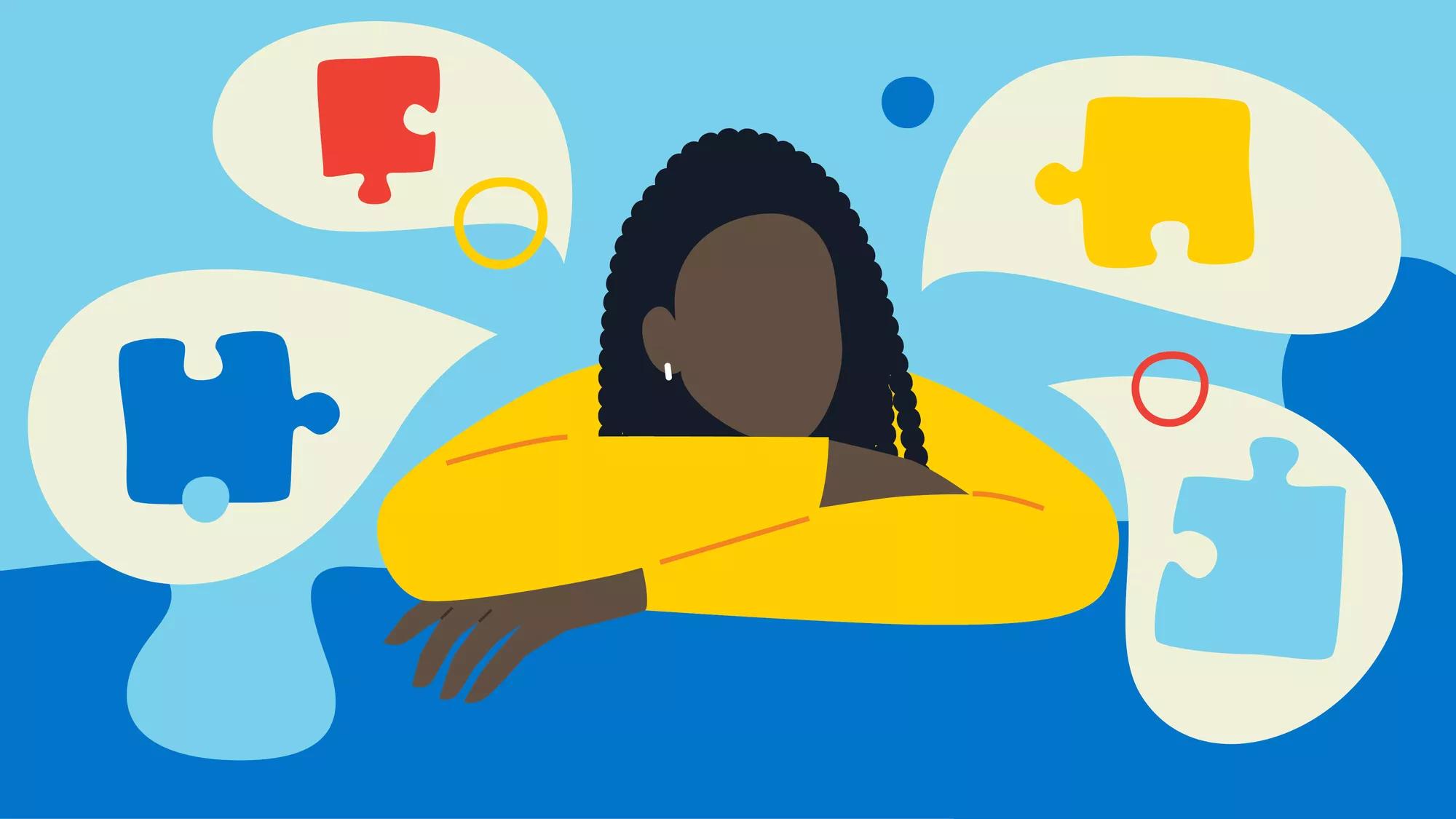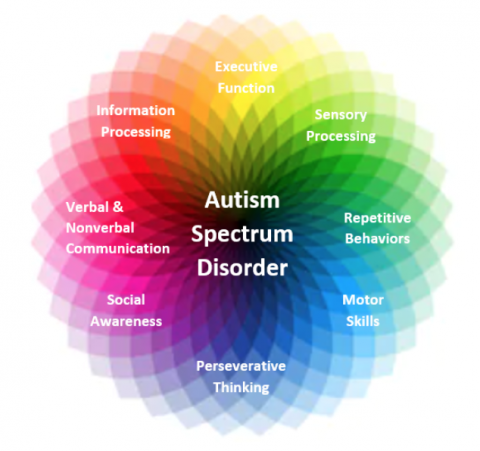How to Interact Successfully with Loved Ones on the Autism Spectrum
How to Interact Successfully with Loved Ones on the Autism Spectrum
Blog Article
Comprehending Autism: A Comprehensive Guide to Signs and indications
Autism Spectrum Condition (ASD) includes a vast variety of attributes that can substantially influence an individual's social communications and daily performance. Comprehending these nuances not just help caretakers and educators in giving suitable assistance but also promotes an extra comprehensive environment for people with ASD.
Review of Autism Range Disorder
Specifying Autism Range Problem (ASD) entails acknowledging it as a complicated neurodevelopmental problem identified by a variety of challenges in social communication, interaction, and behavior patterns. The term "range" shows the wide variability in signs and symptoms and their intensity, which can differ substantially from one individual to another. ASD usually manifests in very early youth, although some individuals may not obtain a medical diagnosis till later in life.
Factors affecting the growth of ASD include ecological variables and genetic tendencies, although the exact reasons continue to be under examination. Diagnosis typically relies upon behavior assessments, as there are no clear-cut clinical tests for ASD. Early treatment is crucial and can considerably boost results, concentrating on boosting communication abilities, social interactions, and adaptive behaviors.
Individuals with ASD may additionally exhibit one-of-a-kind staminas, such as exceptional interest to detail or particular areas of know-how. Recognizing the diverse nature of ASD is important for cultivating a comprehensive environment that accommodates neurodiversity. Proceeded research is crucial for creating reliable interventions and support group, making it possible for people with ASD to grow and fulfill their possible within society.
Common Signs of Autism
Recognizing the common signs of Autism Range Problem (ASD) is essential for early identification and intervention. These signs can differ commonly in seriousness and presentation, but specific attributes are often observed in people with ASD.
One of one of the most prevalent indicators is a significant trouble in preserving and establishing eye call. Individuals may additionally exhibit minimal passion in social communications and reveal a choice for singular play. Repetitive habits, such as hand-flapping, shaking, or spinning things, commonly emerge early in childhood. Furthermore, some youngsters may establish strict regimens and end up being distressed if these routines are interrupted.
Sensory sensitivities are additionally typical; individuals may overreact or underreact to sensory stimulations, such as audios, lights, or appearances. autism. Language development can be irregular, with some children showing postponed speech or utilizing language in uncommon methods, including echolalia-- duplicating sentences or expressions heard in other places
It is important to note that not every individual with ASD will show all these indicators, and the level of these behaviors can vary dramatically. Early acknowledgment permits timely support and sources, boosting the top quality of life for those on the spectrum.
Social Communication Difficulties
Social interaction obstacles are a characteristic of Autism Spectrum Problem (ASD), influencing a person's ability to engage efficiently with others. These troubles can materialize in numerous means, consisting of obstacles in launching and keeping discussions, understanding social cues, and reacting suitably in social communications.
Individuals with ASD might battle with nonverbal interaction, such as eye get in touch with, faces, and body language. This can lead to misconceptions, as their communicative intent may not be appropriately translated by others. In addition, they might discover it challenging to understand the nuances of tone and context, which are necessary published here for effective communication.
In team settings, people with ASD may really feel overwhelmed and may not recognize exactly how to sign up with in discussions (autism). They could likewise show atypical conversational patterns, such as monologuing concerning details passions without acknowledging social reciprocity
Additionally, these difficulties can lead to social isolation or problems in creating connections, as peers might misinterpret their habits or interaction style. Recognizing these social communication challenges is critical for promoting encouraging settings that promote social abilities advancement and enhance the high quality of communications for people on the autism spectrum.
Sensory Sensitivities and Reactions
Lots of individuals with Autism Range Disorder (ASD) experience enhanced sensory sensitivities that can significantly influence their daily lives. These level of sensitivities may materialize as over-responsiveness or under-responsiveness to sensory stimuli, including noises, lights, appearances, preferences, and scents. An individual with ASD may find daily noises, such as a vacuum cleaner or crowded atmospheres, overwhelmingly distressing, leading to anxiety or crises. Alternatively, some might display an indifference to pain or extreme temperature levels, which can present security worries.
Sensory processing differences in individuals with ASD can additionally affect their capability to participate in routine tasks and social communications. A youngster that is delicate to touch may withstand physical affection or stay clear of particular garments fabrics. Conversely, a preference for specific textures or tastes can limit nutritional alternatives and develop challenges during mealtimes.
Recognizing these sensory level of sensitivities is crucial for acknowledging the unique experiences of individuals with ASD. Understanding of their sensory accounts can cultivate far better interaction and assistance techniques, creating an atmosphere that accommodates their needs and improves their lifestyle. Inevitably, recognizing sensory sensitivities is an essential element of understanding the wider range of autism.

Sustaining Individuals With Autism
Reliable support for people with Autism Spectrum Disorder (ASD) is vital for improving their total health and cultivating independence. Assistance methods ought to be customized to meet the one-of-a-kind requirements of each person, considering their staminas and obstacles.

Social skills training can likewise play a crucial duty. autism. Engaging people in team tasks or role-playing circumstances can improve their capacity to navigate social interactions. Furthermore, it is important to inform relative, caregivers, and peers regarding ASD to foster a comprehensive and encouraging area
Verdict
By fostering improved interaction and social skills, people with autism can navigate their environments more successfully. Inevitably, increased awareness and assistance can check here dramatically boost the quality of life for those impacted by ASD.
Autism Spectrum Problem (ASD) encompasses a large array of characteristics that can considerably affect a person's social interactions and daily performance.People with ASD may battle with nonverbal interaction, such as eye call, facial expressions, and body language.Numerous people with Autism Spectrum Disorder (ASD) experience heightened sensory level of sensitivities that can dramatically affect their day-to-day lives.Sensory processing distinctions in people with ASD can additionally affect their ability to involve in social communications and regular activities.Recognizing these sensory level of sensitivities is important for recognizing the unique experiences of people with ASD.
Report this page